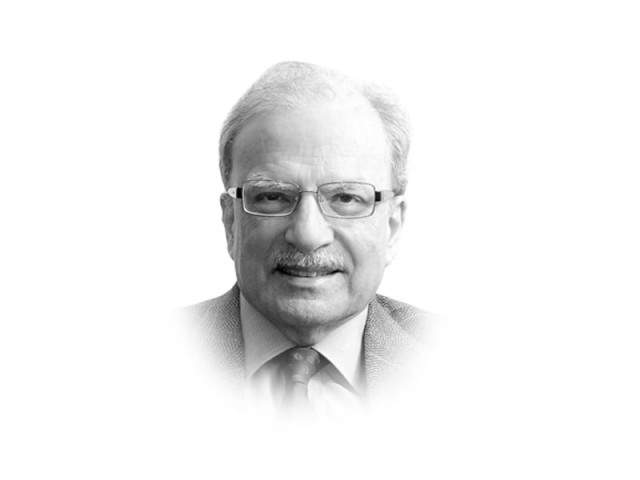Standing at the crossroads again
The 9/11 terrorist attack on the US brought Pakistan to another crossroads.

The second crossroads came in the late 1950s when the political establishment failed to find a solution to the problem of the ethnic divide created by the migration of eight million refugees from India to Pakistan. Under the leadership of the military that intervened for the first time in Pakistan’s history, the country abandoned democracy in favour of a highly centralised authoritarian structure. Under Field Marshal Ayub Khan, the country prospered economically but the lack of political consensus behind the model meant that it could not be sustained. The politics associated with this style of management got in the way.
The Ayubian model of economic and political management was abandoned when the country arrived at its third crossroad under a new military leader. Once again, Pakistan took the wrong road by not allowing the citizens of East Pakistan to take the reins of government that should have been in their hands given the enormous victory they had secured in the elections of 1970. The result was a civil war and the emergence of East Pakistan as the independent state of Bangladesh.
The country got stalled at another crossroads, the fourth in my list, when power was transferred to a civilian leadership from a highly discredited military establishment that had suffered a mighty defeat in East Pakistan. However, the country took the wrong economic road by bringing the state into economic management at a time when it had demonstrated its weakness in playing that role in many countries, especially across the border in India. Those who had studied the role of the state in economic management had concluded that it had an important role to play but not as the owner of economic assets. It should be a friend, guide and champion of private enterprise, not supplant it. Under Zulfikar Bhutto, the country had gone entirely in the wrong direction in terms of economic management.
The 9/11 terrorist attack on the US brought Pakistan to another crossroads. General Pervez Musharraf, now the country’s president, readily joined Washington in what was then called the ‘war on terror’ and received in return an enormous amount of military and economic aid. It has been estimated that the United States has given Pakistan more than $20 billion since 9/11, $14 billon as military aid and the remaining $6 billion as economic assistance. This aid was mostly wasted on the economic side as the country went on a consumption binge that temporarily raised the rate of GDP growth but left deep faults in the structure of the economy.
There is a great deal of wrong these days with the economic state of Pakistan. According to Parvez Hasan, a Pakistani economist who served in number of senior positions in Pakistan and at the World Bank, and has written about his experiences in a recently published memoir, “Given the multi-faceted economic and political problems, the revival of economic growth to a level that would ensure an adequate rate of job creation and some progress towards reducing the present high incidence of poverty appears an uphill task and perhaps more difficult than at time in the past. It is easy to be pessimistic about Pakistan’s future, (but) I believe that it is quite possible that in a decade Pakistan might surprise both itself and the world at large by not only surviving with its borders intact, but also turning a corner in a very significant way towards a modern, moderate, rapidly growing state.”
This means that Pakistan stands once again at another crossroads. There are many directions in which it can go but only one is the right one. That will keep the political system in the hands of the elected representatives of the people, make the military and security establishments responsible to the legislative branch of the government, make public officials responsible to special purpose institutions that will have the power to investigate and punish all those who abuse people’s trust, introduce a fiscal system that will yield enough resources to pay for most of the growth in the national product the country needs while bringing about better distribution of income and wealth and introduce tolerance and respect for all the people no matter what their faith or disposition is. Pakistan’s current policymakers must also engage the country with the world, help it to move away from isolation, into which many circumstances have thrust Pakistan, and focus on turning international trade into a major driver of economic growth. Development economics is not a discipline that trends itself to pessimism. I believe that the right path can be taken even from the most crowded and difficult-to-negotiate crossroads.
Published in The Express Tribune, May 23rd, 2011.



















COMMENTS
Comments are moderated and generally will be posted if they are on-topic and not abusive.
For more information, please see our Comments FAQ